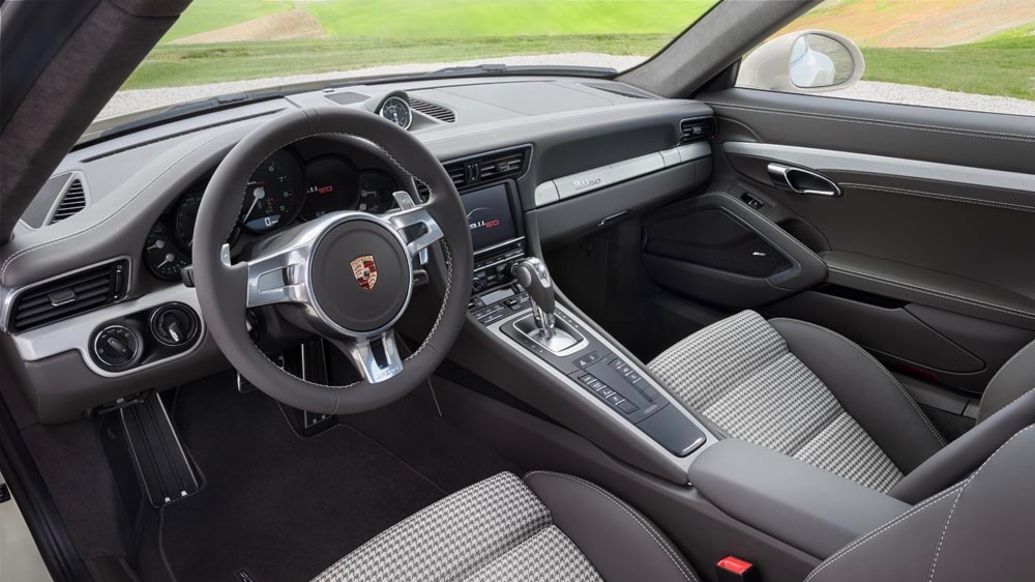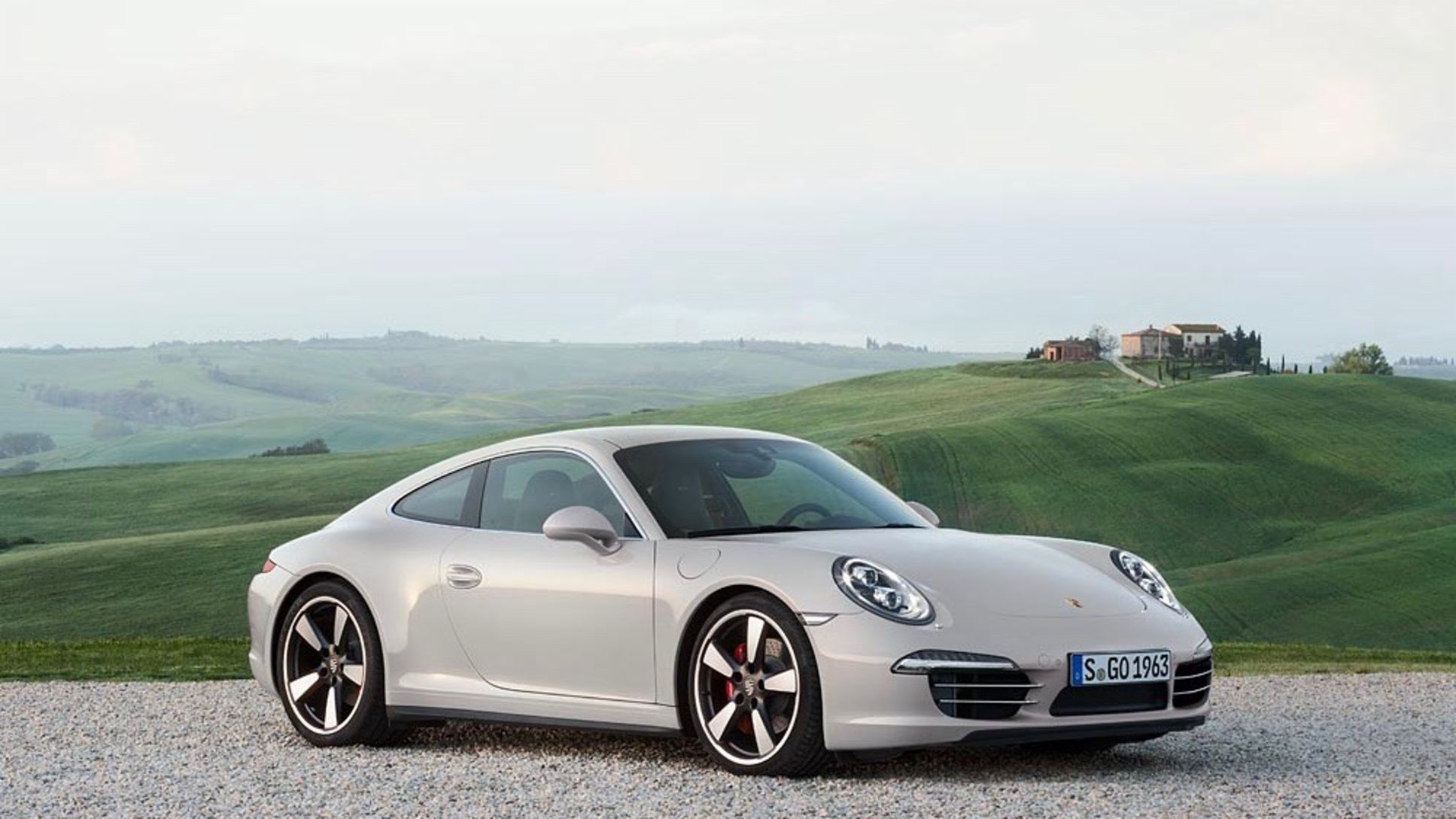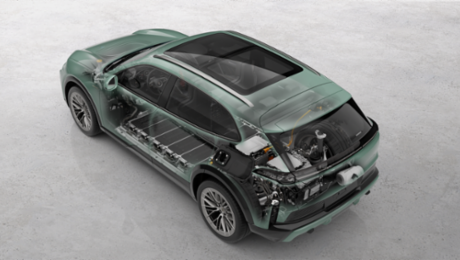Like the original 911, the 911 50th Anniversary Edition is a coupé with a flat-six rear engine and rear wheel drive. Its efficient performance, active sport suspension – and special body have current relevancy: the anniversary 911 features the wide body, which is typically reserved for the all-wheel drive Carrera 4 models. This special edition will be limited to 1963 cars, a number that represents the year of the 911 world premiere.
Porsche will present the limited edition model in time for the 50th anniversary of the 911 at the IAA motor show in Frankfurt, which opens its gates to the public on September 12, 2013. In 1963, Porsche presented the original model to the public at this leading international show for the automotive industry. Since its first presentation – initially as the type 901 – the sports car icon has excited automotive fans across the globe, and today it is considered the reference for all other sports cars. Since making its debut in 1963, the model series has progressively developed without interruption. In the process, the unique character of the 911 was always preserved. The result of this evolution over a 50-year period – which included countless race victories as well – is a sports car that fully embodies the authenticity of the Porsche brand. Its DNA is reflected in all Porsche models.

This limited edition of the 400 hp (294 kW) 911 Carrera S includes features that have contributed to the 50-year success story of the 911. For example, the limited edition includes Porsche Active Suspension Management (PASM) with special tuning to complement its increased track width and to add support to the exceptional cornering dynamics of the 911. The sport exhaust system outputs a fitting emotional sound. Special 20-inch wheels are a visual tribute to the legendary “Fuchs” wheels and are finished in matte black paint with machine polished centres. Chrome trim strips on the front air inlets, the fins of the engine compartment grille and the panel between the rear lights emphasise the distinctive appearance of this limited edition model. Another technical highlight of the car’s equipment is the Porsche Dynamic Light System (PDLS) with bi-xenon headlights and dynamic cornering lights
Two unique colours are available for the anniversary 911, a darker graphite grey and a lighter geyser grey metallic. In addition black monochrome is also available. Each of the cars has a two-tone 3D-effect badge on the rear lid with the numbers “911 50”. This is repeated in three colour embroidery on the headrest and in two colours as a logo on the tachometer and the aluminium door sill plates. It can also be found on the cup holder panel – together with the limited edition number of the individual vehicle.mOther exterior characteristics of the special model are high-gloss window frames and sport design exterior mirrors on the doors panels.

There are tributes to the original 911 in the interior as well: green labelling on the instruments with white pointer needles and silver caps on the instrument pivot pins, just like 50 years ago. Another special feature is the centre panels of the leather seats, which are designed with a fabric pattern reminiscent of the “Pepita” tartan design from the 1960s. The full-leather interior is designed in agate grey or black with decorative stitching, some in contrasting colour. The driver and front passenger experience typical 911 driving fun in 14-way sport seats or optional 18 way sport seats plus. The gear shift or selector lever – which matches the decorative panels on the dashboard, doors and centre console in brushed aluminium – comes from the Porsche Exclusive program.
The 911 50th Anniversary Edition sprints from zero to 100 km/h in 4.5 seconds (4.3 with PDK) and can reach a top speed of 300 km/h (298 with PDK). The car’s NEDC combined fuel consumption is 9.5 l/100 km (8.7 with PDK), which equates to CO2 emissions of 224 g/km (205 with PDK). The limited edition models will be available at Porsche dealers starting September 23, 2013, and in Germany they will cost 121,119 euros including VAT and country-specific features.

